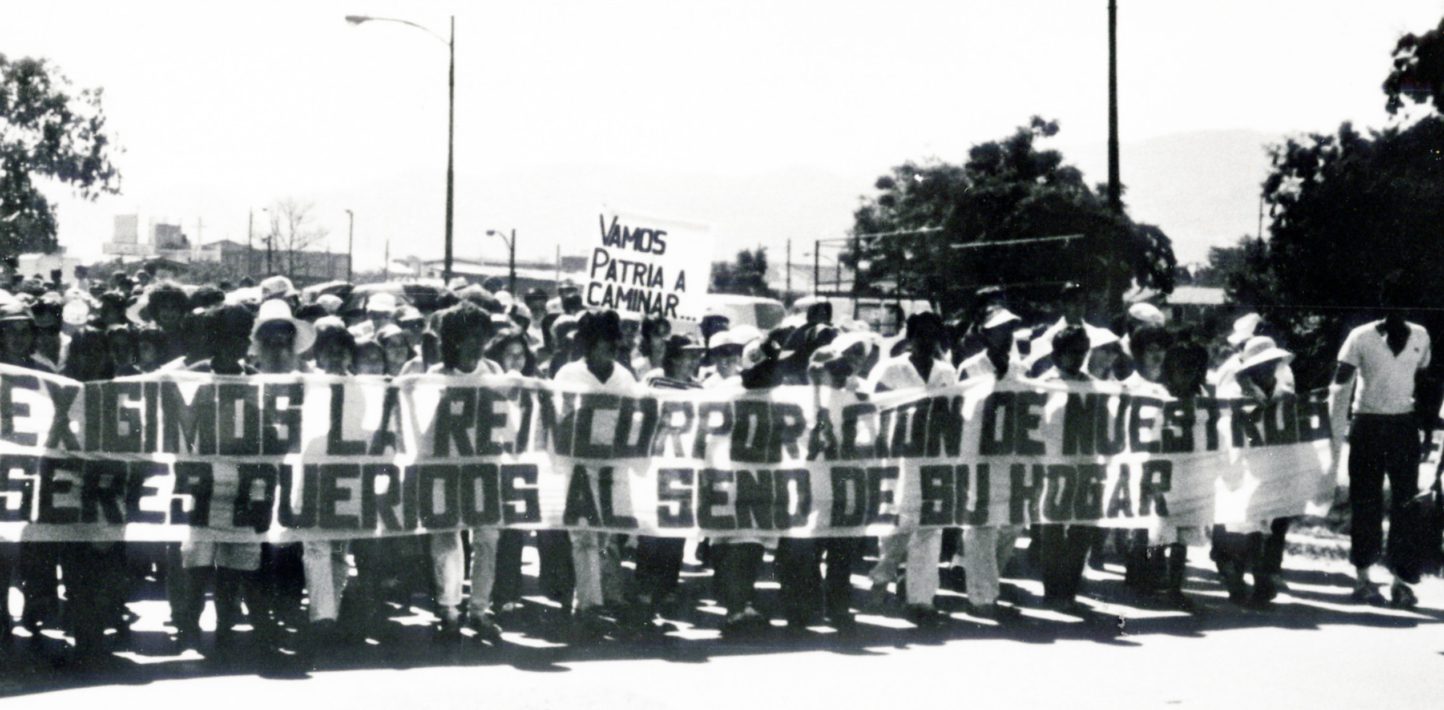The approval of laws 5377 and 5257, which the Congress of the Republic will discuss on Wednesday, February 13, would put the human rights of thousands of people in Guatemala at risk, said Amnesty International today.
“These legislative initiatives put at risk the progress of the last decade in the investigation and prosecution of those responsible for human rights violations in Guatemala. These advances have been possible thanks to the valiant and tireless efforts of the victims, their legal representatives, prosecutors and the people and civil society organizations that defend human rights. These laws would also put in doubt the future of the fight against impunity,” said Erika Guevara-Rosas, Americas director at Amnesty International.
The possible approval of law 5257, under discussion for the third time, which proposes amending the Law on Non-Governmental Organizations for Development, constitutes a threat to the rights to freedom of expression and association in Guatemala. It would impose excessive controls and onerous requirements for the registration and operation of NGOs in the country.
It would also grant broad powers to the government to permanently suspend the activities of an NGO for reasons such as “disturbance of public order,” an ambiguous term whose interpretation could lead to the arbitrary closure of civil society organizations and worsening criminalization through the imposition of criminal sanctions against the human rights defenders that work in them.
These legislative initiatives put at risk the progress of the last decade in the investigation and prosecution of those responsible for human rights violations in Guatemala.
Erika Guevara-Rosas, Americas director at Amnesty International
“In the context of repeated acts of stigmatization, smear campaigns and other constant attacks by private actors and the Guatemalan authorities against organizations and human rights defenders, law 5257 seems to be another attempt to hinder the work of those who work for justice and human rights,” said Erika Guevara-Rosas.
The proposed law 5377, which will be debated for the second time, would grant amnesty to those accused of serious crimes committed during the country’s internal armed conflict – such as genocide, torture and enforced disappearances – in violation of Guatemala’s international obligations not to let such acts go unpunished. The Inter-American Court of Human Rights and other international human rights bodies have reiterated that amnesties for crimes under international law or serious human rights violations are incompatible with states’ obligations to investigate, prosecute and punish those responsible for these crimes.
After decades of impunity, in 2008 the first cases of human rights violations committed during the internal armed conflict were brought to justice, resulting in the conviction of at least 30 former military commanders, military commissioners and former members of the Patrullas de Autodefensa Civil (PAC) for the crimes of torture, enforced disappearances, extrajudicial executions, sexual violence and sexual slavery.
Law 5377 represents a serious threat to the rights of thousands of victims of the country’s internal armed conflict to learn the truth and to obtain justice for the atrocities that they and their families suffered.
Erika Guevara-Rosas, Americas director at Amnesty International
Despite the advances made in these historical trials, to date thousands of victims are still waiting for justice in Guatemala. If law 5377 is approved, ongoing investigations into these crimes would be suspended, and those convicted by Guatemalan courts during the last decade would be released within 24 hours.
“Law 5377 represents a serious threat to the rights of thousands of victims of the country’s internal armed conflict to learn the truth and to obtain justice for the atrocities that they and their families suffered. Moreover, the release of convicted persons would place at grave risk those who participated in these historic trials, including the victims, witnesses, their legal representatives, experts and prosecutors,” said Erika Guevara-Rosas.
Instead of approving laws 5257 and 5377, which would bring serious setbacks in the struggle for justice and human rights, Amnesty International calls on Guatemala’s Congress to guarantee the rights of victims of human rights violations and ensure a safe environment for the human rights defenders who support them every day.
For more information or to arrange an interview, please contact Amnesty International press office, [email protected]


